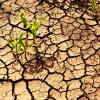
It is our pleasure to announce that IIASA Distinguished Visiting Fellow and longtime collaborator, Simon Levin, was one of the three recipients of the 14th BBVA Foundation Frontiers of Knowledge Award in Ecology and Conservation Biology.
 © Silveri | IIASA
© Silveri | IIASA
Levin shares the award with fellow ecologists Lenore Fahrig and Steward Pickett for incorporating the spatial dimension into ecosystems research. The three award winners have made fundamental contributions, both to the development of the theory and mathematics of spatial ecology, and to its application to the design of nature reserve areas, wildlife management plans, as well as road networks and sustainable cities.
Although the three awardees have never worked together, their work has been fundamental, both theoretically and practically, in the field of spatial ecology. Specifically, Levin has led its mathematical development, building it into models for the analysis of complex ecosystems. Fahrig studies the impacts on biodiversity of habitat fragmentation and loss of connectivity between remnant patches of biodiversity, while Pickett is a pioneer of urban ecology, which assumes that cities will harbor a growing percentage of the population, making it vital to consider how urban spaces can be used to conserve biodiversity.
Levin’s relationship with IIASA stretches back many years. He served as Council member for the USA and as IIASA Council Chair from 2003-2008 and Council Vice-Chair from 2008-2012. He was also named an IIASA Honorary Scholar in 2012 and an IIASA Distinguished Visiting Fellow in 2014.
“We extend our warmest congratulations to Simon Levin on receiving this prestigious award and look forward to continued and fruitful collaboration in the future,” says IIASA Director General, Albert van Jaarsveld.
News

25 April 2024
Climate change could become the main driver of biodiversity decline by mid-century

02 April 2024
CROPS: a new EU-funded project to grow citizen science in Europe

14 March 2024